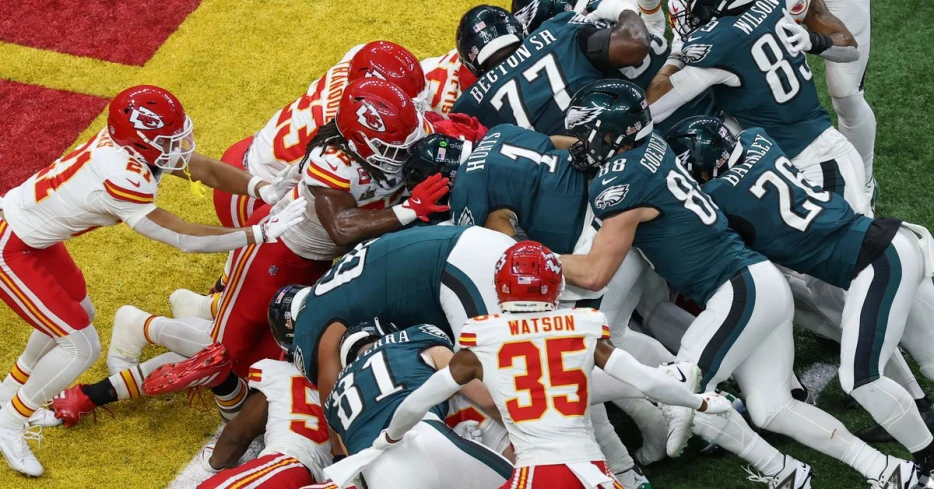
 Pats Pulpit
Pats Pulpit
The controversial play was up for vote at the NFL meetings in Minneapolis on Wednesday.
Banning the controversial tush push play was up for vote at the NFL meetings in Minneapolis on Wednesday, but the proposed rule change failed to garner enough support. Needing 24 votes to pass, the ban only received the support of 22 of the league’s 32 franchises.
Among those throwing their support behind the play were the New England Patriots. According to a report by Adam Schefter of ESPN, they helped prevent the ban from happening.
The Philadelphia Eagles, Baltimore Ravens, Cleveland Browns, Detroit Lions, Jacksonville Jaguars, Miami Dolphins, New Orleans Saints, New York Jets and Tennessee Titans also voted to keep the play. Had only two of those clubs voted differently, the tush push would have been a thing of the past.
The play itself was popularized by the Eagles, who started using it to great success back in 2022. In essence, the quarterback — in Philadelphia’s case 6-foot-1, 223-pound Jalen Hurts — would line up under center in a short-yardage situation and, with the ball in his hands, be pushed forward from behind.
Since beginning using the tush push, the Eagles have converted 91.3 percent of their quarterback sneaks into either a first down or a touchdown, according to CBS Sports’ Jeff Kerr. The NFL average over the same three-year time span is 84.2 percent.
Interestingly enough, Philadelphia already converted 91.9 percent of “traditional” sneaks during the 2021 season, before the advent of the tush push.
“What I think we should not do and be careful of is there’s a lot of different plays that you have to defend, that the offense does well,” Patriots head coach Mike Vrabel said about the play earlier this offseason.
“That particular play, you have to defend it. It’s also tough to defend Lamar Jackson when he runs the ball. So, I’m all in favor of getting rid of those plays that are tough to defend. But we just try to focus on what the rules are and try to use them to our advantage.”
Banning the tush push was originally proposed by the Green Bay Packers back at the NFL ownership meetings in March. The language of the proposal was modified since, but it still failed to convince enough teams to give it their blessing.